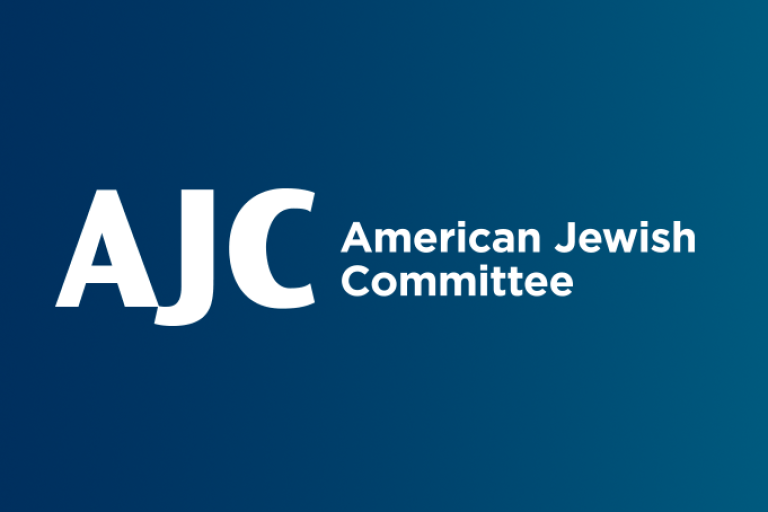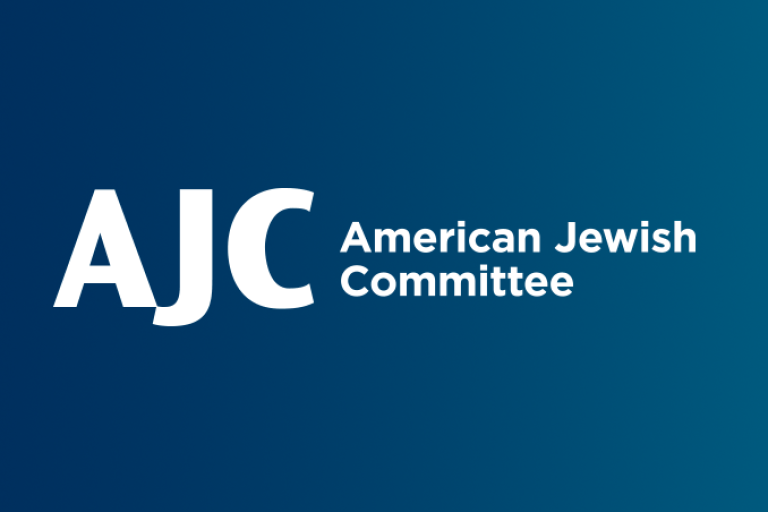May 7, 2024 — Dallas
The following column by AJC Dallas Director Joel Schwitzer appeared in the Dallas Morning News.
Jewish student leaders at the University of North Texas recently planned a walk on campus to amplify the plight of the 132 Jewish, Muslim, Christian and Hindu hostages — including eight Americans — still being held captive by Hamas terrorists.
While there, I didn’t see any signs for Israel Week programming (of which the walk was the kickoff event). I was told they had been snatched almost as soon as they had been placed.
What I did see were many anti-Israel and antisemitic messages written in chalk on the sidewalks. Perhaps the most shocking of these read “No Zionists at UNT,” with an asterisk. Below the asterisk, it read “*this is not Anti-Semitic (sic).” It’s similar to a drunk relative at a family dinner proclaiming, “I’m not a racist, but…”
Listen to those affected by vile words and deeds. Just as we pay heed to the Black or LGBTQ+ communities about the bias or racism they experience, it is incumbent that we are guided by the Jewish community when defining antisemitism.
Zionism is the aspiration or support for the right of the Jewish people to self-determination in their ancestral homeland. For me personally, and many Jews, it is exemplified by Israel’s national anthem, Hatikvah (the hope), based on an 1877 poem by Naftali Herz Imber. The anthem ends with the stirring words: “Our hope is not yet lost, the hope of two thousand years. To be a free nation in our own land, the land of Zion and Jerusalem.”
Shockingly, this term is increasingly being weaponized as a slur.
A recent American Jewish Committee report found that 80% of American Jews believe that caring about Israel is central to their Jewish identity. In other words, Zionism is part and parcel of what makes them Jewish. So, when pro-Palestinian protesters effectively hold all Jews responsible for the actions or policies of Israel and oppose the existence of a Jewish state, that is antisemitic.
Former Soviet dissident, human rights activist and Jewish leader Natan Sharansky once delineated what he called his “3D test of antisemitism” to better understand the distinction between being anti-Israel and being outright antisemitic. These include demonization, delegitimization and double standard.
Demonization is exemplified by comparisons of Israel to Nazis. The Dallas Mavericks acknowledged their Jewish fans by wishing all who celebrate a happy Passover on its social media channels. Among the many comments was a meme of Adolf Hitler in a relay race handing a baton off to Israeli Prime Minister Benjamin Netanyahu. This is what antisemitism looks like.
Statements that Israel has no right to exist including the labeling of Israel as a settler colonialist endeavor, or calls of “from the river to the sea” fall into the category of delegitimization. I recently had the honor of assisting a delegation of family members of hostages with a community visit. One of these families has lived in Israel continuously for 2,000 years. They are as legitimate as you can get.
This, too, is what antisemitism looks like.
A double standard occurs when Israel is singled out to the exclusion of significant human rights abuses elsewhere. Where is the anguish over the slaughter in Darfur under the Sudanese government, in Syria under the Assad regime or the abuse of Uyghur Muslims in China? When only Israel is held to account, that is also antisemitism.
At American Jewish Committee, we’ve identified a fourth D to Sharansky’s list: dis-inclusion, which is perhaps the most insidious. It includes requiring Jews to disavow their real or perceived connection to Israel or shunning them because of that connection. That is what happened to Jewish (not Israeli) musician Matisyahu, who had several shows canceled when staff refused to work at a venue or shows were canceled over security concerns.
Even more troubling, in 2022, the co-founder of a student group at SUNY New Paltz was booted out of the group she started for survivors of sexual assault because of her Zionist views.
This is most certainly what antisemitism looks like.
You can certainly disagree or protest Israel’s policies without lapsing into antisemitic tropes. You know who criticizes Israel the most? Israelis. But they don’t question the Jewish people’s right to self-determination and call for the elimination of the only Jewish state.
Nor should you.
Learn what is hateful. Commit to disagreeing in an agreeable way. We all benefit when we know how to turn down the heat and shed more light.



